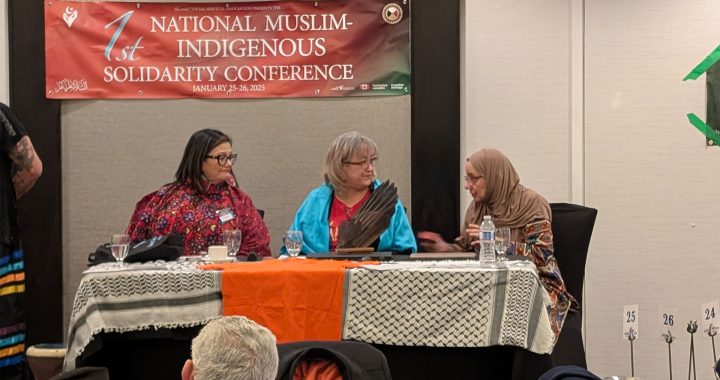
Regina-based lawyer Tony Merchant is fighting to keep his class-action lawsuit for MMIWG alive. Photo: APTN file
A high-profile Saskatchewan lawyer has been handed a stiff eight-month suspension for threatening an Indigenous residential school survivor into using some of her compensation proceeds to cover legal bills incurred by her son.
In a stinging rebuke, the province’s law society lambasted Tony Merchant for actions that occurred barely two years after he had been disciplined for comparable misconduct.
Records show the federal government in 2014 sent money to Regina-based Merchant Law Group – which has offices across Canada – to be held in trust for its client, identified only as J.S. In an April 2014 letter, Merchant wrote J.S., now in her 70s, to say she had previously promised to cover fees her son owed for legal services.
“We could sue you for the $21,310.83,” Merchant wrote. “My expectation is we would succeed with that lawsuit and obtain a judgment against you. We could then seize your assets, your car, your bank account, or whatever, in order to collect these debts that you owe.”
The letter further stated J.S. could “instruct” the law firm to take the owed amount out of her compensation. J.S. quickly agreed.

However, the settlement of the class action over abuses at Canada’s now defunct residential schools bars lawyers from taking compensation money for legal fees, prompting a complaint to the Law Society of Saskatchewan.
Only after courts in British Columbia ruled Merchant had no right to withhold any money, did the firm pay out the rest to J.S.
At his disciplinary hearing, Merchant argued he sincerely believed his client had signed a valid agreement allowing him to keep some of her compensation. Although his belief turned out to have been off-side legally, he maintained his conduct was not unethical.
The disciplinary panel was not impressed. As someone heavily involved in the residential school settlement and multiple court rulings on the issue, Merchant should have known the rules, the hearing panel found.
“We did not believe that (Merchant) had made a sincere mistake,” the panel concluded in ruling he was guilty of conduct unbecoming a lawyer.
The letter
The panel also called the letter in which he threatened to sue J.S. over her son’s debt “intimidating.”
“This language was not in keeping with a lawyer’s obligation to treat clients, and particularly vulnerable clients, with courtesy and consideration,” the panel ruled.
When it came to punishment, Merchant argued his misconduct was minor, he had a “strong sense of social responsibility,” and that he had helped many Indigenous and other vulnerable clients. He argued a suspension would disrupt his “complicated schedule of important litigation.”
The panel, however, found a “misalignment between the paragon of dedication to social justice” Merchant portrayed and the “tone of disrespect and intimidation” he adopted with a vulnerable client.
Ultimately, the panel concluded Merchant had done an “end-run” around rules he knew, or ought to have known, applied. Aggravating his misconduct was his disciplinary record, the panel said.
“It is unclear why (he) has failed to take instruction from earlier instances in which he was disciplined, but that resistance to learning lessons from the judgments of his professional peers must also be seen as an aggravating factor.”
The panel did put Merchant’s eight-month suspension on hold until Feb. 1, 2021 to allow him time to put his practice in order.
The panel also ordered him to pay $10,643 to cover its legal costs.
Merchant did not immediately respond to a request for comment.










